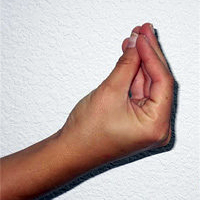WHY A SOLID SNOOZE IS SO IMPORTANT
As a result of the large uptick in sleep research over the last several years, we now know that good sleep quality is a predictor of physical health, mental health, and vitality. There is growing evidence that high-quality sleep can decrease inflammation, immune dysfunction, and oxidative stress (1,2).

LACK OF SLEEP WILL CATCH UP WITH US IN MORE WAYS THAN ONE
Inadequate sleep, which is estimated to affect over one third of adults in the US, is correlated with decreased cognitive functioning, memory consolidation, mood, as well as cardiovascular and cerebrovascular health. In fact, stroke risk was found to be more than three times higher in those who regularly sleep too little, (estimated to be less than 7 hours/night), and two times higher in those who sleep too much, (more than 9 hours/night) (3).
Studies have also found that metabolic health, (diabetes, obesity), is affected by insufficient sleep. Sleep loss creates a hormone imbalance in the body that promotes overeating and weight gain (3). For example, leptin is a hormone that regulates appetite, and when we aren’t getting sufficient sleep, the production of leptin is altered in a way that creates increased feelings of hunger.
OUR BONES ARE AT RISK TOO
As you may have guessed, my motivation for writing this blog is related to recent reports that our bones are negatively impacted by sleep loss.
A large study of 113,082 adults found an increased incidence of osteoporosis in people with obstructive sleep apnea (OSA) (4). Some of the possible mechanisms associating OSA and decreased bone mineral density include:
- OSA may lead to vitamin D deficiency.
- OSA may cause secondary hyperparathyroidism (which may lead to bone demineralization).
- The hypoxia which occurs in OSA may inhibit bone growth.
In another large study of 11,084 postmenopausal women, subjects who slept five hours or less/night had significantly lower bone mineral density at multiple sites, compared with those who slept seven or more hours/night (5).
BIOLOGICAL CLOCKS AND CIRCADIAN RHYTHMS
Nearly everything about how our body works is tied to a system of biological clocks that control the daily, (or circadian), rhythms of the body in a 24-hour cycle.
- Circadian clocks are found in ALL mammalian cells.
- Light is the most powerful influence on circadian rhythms.
Even drug efficacy has been linked to our clocks. For example, studies have shown that some drugs might be more effective if given at certain times of the day.
YOU ARE NOT ALONE
Chronic Insomnia: Defined as difficulty falling asleep, staying asleep, or waking up too early three or more nights/week for at least 3 months.
- ~ 50% of adults in US experience periodic bouts of insomnia
- 10% experience chronic insomnia
Older adults tend to sleep less and are prone to more waking episodes after initially falling asleep, both of which are tied to changing circadian rhythms, which begin to work less efficiently in later years.
Obstructive Sleep Apnea: A repetitive blockage or narrowing of the upper airway during sleep that results in periods of reduced or absent breathing.
- Affects ~ 25 million adults in US.
- This number is thought to be higher because less severe cases go undiagnosed.
Restless Legs Syndrome (RLS): A neurologic condition characterized by a persistent and overwhelming urge to move the legs while at rest or when trying to sleep.
- Affects 5-10% of US adults.
- Purposeful movement typically provides short-term relief.
STRATEGIES THAT CAN HELP
Below is a wide-ranging compilation of possible solutions to help you get a better night’s sleep. Keep in mind that while no single strategy is a sure thing for everyone, I’ve included many positive action steps that can be tried immediately.
Sleep Schedule and Routine
- Consistent schedule: aim for fixed times for bedtime and waking up.
- Make sleep a priority.
- Avoid or limit napping: less than 20 minutes and not too late in the day.
- About 30 – 60 minutes prior to bedtime, unplug from ALL electronics, and begin a slowing-down/quieting practice.
Healthy Daytime Habits
- Go outside! Exposure to natural light, especially early in the day, helps reinforce the strongest circadian cue.
- Exercise at least some amount every day, but not too close to bedtime.
- Stop smoking – nicotine is a known sleep disrupter.
- Reduce alcohol consumption, especially close to bedtime. Alcohol may help at the beginning of the sleep cycle, but it disrupts sleep rhythms later in the night.
- Cut down on caffeine, especially after midday.
Exercise
Many studies support the fact that exercise during the day improves sleep quality in middle and older-aged adults (6). Interestingly, one study reported that too little (< 7 hours) or too much (> 9 hours) combined with sedentary lifestyle was associated with a higher risk of all-cause mortality. HOWEVER, those who had a higher volume of physical activity were able to mitigate these effects, even when the sleep patterns remained unchanged (7). Yet another plug for including more exercise in your life!
The Sleep Environment
- Remove devices from the bedroom due to blue light concerns: smartphones, computers, TVs, etc., can emit blue light that disrupt our natural sleep cycles.
- Make sure the room is as dark as possible; consider room-darkening window treatments or an eye mask.
- Lower the thermostat. Most people sleep better at room temperatures around 68◦
- Make sure the room is well ventilated.
- Time for a new mattress? Replacing mattresses every 10 years can cut down on allergen build-up.
Nutrition: Can We Eat Our Way to Better Sleep?
While eating a well-balanced diet positively affects all systems of the body, sleep quality may be improved with consumption of these foods:
- Tryptophan-containing foods: milk, tuna, turkey, others (tryptophan is used in the production of melatonin)
- Foods that naturally boost serotonin: salmon, poultry, eggs, spinach, seeds, and others.
- Foods that naturally boost melatonin: milk, many plant foods, fatty fish, nuts, and others. One researcher, Binks, et al, (8) singled out tart cherries as particularly beneficial.
- Foods rich in zinc: oysters, turkey, yogurt, beans (especially black-eyed peas).
Mindfulness Practices
A wide array of mindfulness practices has been found to foster resilience through self-care, ease stress, and improve sleep. Some of the many forms include:
- body scans
- visualization, (such as a place where you love to be)
- various breathing techniques; slow, dep breathing may be particularly helpful (9)
- reciting a mantra
- the Feldenkrais Method® which uses deceptively simple movements to foster a deeper sense of body awareness, (see example below)
- many other forms; many apps available
One example of an easy-to-implement Feldenkrais strategy for relaxation and/or falling asleep:
Gentle, slow, repetitive opening/closing movements of one or both hands in coordination with the breath, like the opening and closing of the aperture of a camera lens.

<->

Music, White Noise Machines, Weighted Blankets
These options have proven helpful for many people. Weighted blankets may provide a sense of security and comfort, and may also be particularly helpful for those with Restless Legs Syndrome.
“A Secret for Falling Asleep So Good it’s a British National Treasure”, by Grace Linden, published 2/14/23. https://www.nytimes.com/2023/02/14/magazine/falling-asleep-shipping-forecast.html
I encourage you to check out this article from the New York Times that describes how many folks in Great Britain doze off to the sound of the BBC Shipping Forecast. (A link to the actual broadcast is included in the article.) It’s a hoot and may work for you!
Cognitive Behavioral Therapy
Whether needing help to quiet an overactive mind or identifying and addressing maladaptive behaviors that lead to wakefulness, cognitive behavioral therapy is now commonly recommended as an important, and often first-line treatment for chronic insomnia.
Melatonin: Is It Safe and Effective?
Pros:
- Can help you fall asleep sooner, but not necessarily for longer.
- Can helps regulate circadian rhythms when disrupted, (shift work, jet lag).
- Is considered safe for short-term use at low doses, (starting at < 1mg).
Cons:
- Prolonged use may disrupt the body’s ability to produce melatonin.
- Side effects may include headache, dizziness, nausea, and drowsiness the next day.
- May worsen symptoms of Restless Legs Syndrome due to melatonin’s inhibition of dopamine, which may play a role in RLS
- The long-term safety and effectiveness remains unknown.
What About Magnesium Supplements?
Magnesium supplementation is often purported to improve sleep, but the evidence supporting this is limited. Despite this, one recent meta-analysis concluded that since many older adults are at higher risk of magnesium deficiency, and that since this can contribute to altered sleep patterns, experimenting with supplementation may be beneficial (10).
References
1. Ramar K, et al. Sleep is Essential to Health: An American Academy of Sleep Medicine Position Statement. Journal of Clinical Sleep Medicine 2021; Oct 17(10).
2. Fatin, A, et al. Sleep Deprivation, Oxidative Stress, and Inflammation. Advances in Protein Chemistry and Structural Biology 2020; 119:309-336.
3. McCarthy CE, et al. Sleep Patterns and the Risk of Acute Stroke: Results from the INTERSTROKE International Case-Control Study. Neurology Apr 2023, 10.
4.Wang C, et al. Relationship Between Obstructive Sleep Apnea-hypopnea Syndrome and Osteoporosis Adults: A Systematic Review and Meta-analysis. Frontiers in Endocrinology (Lausanne). 2022 Nov 17; 13:1013771
5. Ochs-Balcom HM, et al. Short Sleep Is Associated with Low Bone Mineral Density and Osteoporosis in the Women’s Health Initiative. Journal of Bone Mineral Research 2020 Feb;35(2):261-268.
6. Kline CE, et al. The Bidirectional Relationship between Exercise and Sleep: Implications for Exercise Adherence and Sleep Improvement. American Journal of Lifestyle Medicine 2014; 8(6), 375–379.
7. Yannis Yan Liang, et al. Joint Association of Physical Activity and Sleep Duration with Risk of All-cause and Cause-specific Mortality: A Population-based Cohort Study Using Accelerometry. European Journal of Preventive Cardiology 2023.
8. Binks H, et al. Effects of Diet on Sleep: A Narrative Review. Nutrients 2020 March; 12(4):936.
9. Jerath R, et al. Self-Regulation of Breathing as an Adjunctive Treatment of Insomnia. Frontiers in Psychiatry 2019 January;9:780.
10. Mah J, et al. Oral Magnesium Supplementation for Insomnia in Older Adults: A Systematic Review & Meta-Analysis. BMC Complementary Medicine and Therapies 2021 Apr 17;21(1):125.
